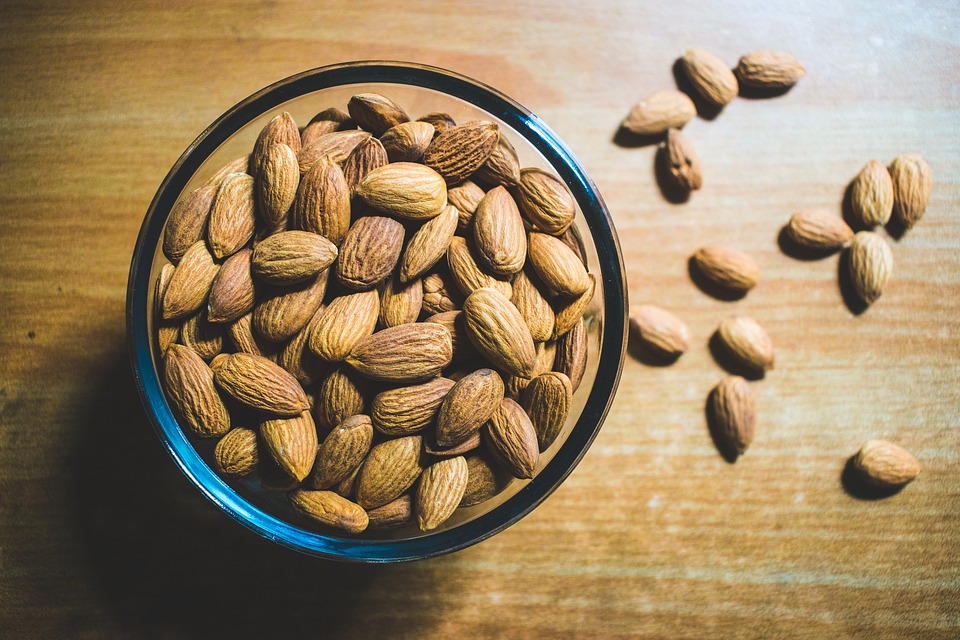
Introduction
The Journey of Motherhood and Nutrition: Embracing Plant-Based Alternatives
As a new mother, the journey you embark upon is not only beautiful but also one laden with responsibilities, particularly in terms of nutrition. Breastfeeding, a vital phase of early motherhood, demands special attention to your diet, as it directly impacts your baby’s health and development. In today’s health-conscious world, many mothers are turning towards vegan diets, either due to ethical beliefs, health reasons, or environmental concerns. This shift has brought plant-based milks into the spotlight, especially for breastfeeding mothers who are keen on ensuring their diet is both vegan-friendly and nutritionally rich.
The intention of this guide is to delve deep into the world of plant-based milks – exploring, comparing, and understanding their nutritional profiles and how they align with the needs of breastfeeding mothers. Whether you’re a long-term vegan or newly embracing this lifestyle, this guide aims to be your companion in making informed decisions about plant-based nutrition during one of life’s most precious stages.
Why Plant-Based Milks?
Plant-based milks are not just a trend; they’re a reflection of a growing awareness about dietary choices and their impact on health and the environment. For vegan mothers, these milks offer a way to adhere to their vegan principles while still obtaining the essential nutrients needed for both themselves and their breastfeeding babies. From soy to almond, and oat to coconut, each type of plant-based milk comes with its unique nutritional profile. Understanding these differences is key to choosing the milk that best supports your and your baby’s health.
Nutritional Needs During Breastfeeding
Breastfeeding mothers have increased nutritional needs to ensure the health and development of their babies. Key nutrients of focus include:
- Protein: Essential for the growth and repair of tissues.
- Calcium: Vital for bone development.
- Vitamins B12 and D: Crucial for the nervous system and bone health.
- Iron, Zinc, and Omega-3 Fatty Acids: Important for cognitive development and overall health.
Embracing the Vegan Lifestyle: Challenges and Considerations
While a vegan diet can be rich and varied, certain nutrients commonly found in animal products might be less available in plant-based sources. This is where fortified plant-based milks come into play, potentially filling nutritional gaps. However, it’s not just about replacing cow’s milk with a plant-based alternative; it’s about understanding the unique nutritional needs of breastfeeding mothers and how different plant-based milk can meet these needs.
Navigating the World of Plant-Based Milks
In the realm of vegan breastfeeding, understanding the nuances of different plant-based milks is crucial. Let’s embark on a journey through the most popular options, dissecting their nutritional profiles and suitability for nursing mothers.
Soy Milk: The Protein Powerhouse
Nutritional Highlights:
- Rich in protein, closely mirroring the protein content of cow’s milk.
- Often fortified with calcium, vitamins D and B12.
- Contains essential amino acids and phytoestrogens, which have been debated but generally considered safe.
Why It’s Great for Breastfeeding:
- The high protein content supports tissue repair and growth, vital for both mother and baby.
- Fortification covers key nutrients that might be lacking in a vegan diet.
Points to Consider:
- Ensure non-GMO and organic choices to avoid potential contaminants.
- Some may have concerns about phytoestrogens, although current research suggests they are safe.
Almond Milk: The Low-Calorie Choice
Nutritional Highlights:
- Lower in calories and fat.
- High in vitamin E and often fortified with calcium and vitamin D.
Best For:
- Those looking to manage calorie intake without compromising on nutritional value.
- Excellent source of vitamin E, beneficial for skin health.
Points to Consider:
- Lower in protein; should be complemented with other protein sources in the diet.
- Not suitable for those with nut allergies.
Oat Milk: The Fiber-Friendly Option
Nutritional Highlights:
- Good source of dietary fiber and beta-glucans for heart health.
- Often fortified with vitamins and minerals.
Best For:
- Breastfeeding mothers needing additional fiber.
- A creamy texture that makes it a popular choice for beverages.
Points to Consider:
- Can be higher in carbohydrates and calories.
- Ensure it’s gluten-free if you have gluten sensitivities.
Rice Milk: The Hypoallergenic Alternative
Nutritional Highlights:
- Low in fat and often enriched with vitamins and minerals.
- The most hypoallergenic of all plant-based milks.
Best For:
- Mothers with allergies to soy, nuts, and gluten.
- Those who prefer a lighter, naturally sweet taste.
Points to Consider:
- Low in protein and higher in carbohydrates.
- Some concerns over arsenic levels, especially in brown rice varieties.
Coconut Milk: The Tropical Choice
Nutritional Highlights:
- Contains medium-chain triglycerides (MCTs) for quick energy.
- Low in protein but can be fortified with vitamins and minerals.
Best For:
- Those looking for a milk with a distinct flavor profile.
- Mothers needing an energy boost due to MCTs.
Points to Consider:
- Lower in protein and can be high in saturated fats.
- Check for added sugars and preservatives in commercial varieties.
Making the Right Choice for You and Your Baby
When selecting the ideal plant-based milk for breastfeeding, it’s important to consider your individual dietary needs and preferences. Here are some tips to guide your choice:
- Understand Your Nutritional Needs: Consider what nutrients you and your baby need most. If protein is a priority, soy milk might be your best bet. For lower calories and higher vitamin E, almond milk could be the way to go.
- Read Labels Carefully: Look for milks that are fortified with essential nutrients like calcium, vitamin D, and B12. Be mindful of added sugars and preservatives.
- Consult with Healthcare Professionals: Speak with a dietitian or healthcare provider to ensure your dietary choices align with your and your baby’s nutritional needs.
- Listen to Your Body: Pay attention to how different milks make you feel. Gut health and personal tolerance are key to a sustainable diet.
- Diversify Your Intake: Don’t rely solely on one type of milk. Variety ensures a broader range of nutrients and reduces the risk of potential allergens or intolerances.
In the next section, we’ll delve into how to incorporate these milks into your daily diet and explore the role of supplementation to ensure a balanced and nutritious breastfeeding journey. Stay tuned for practical, tasty tips and recipe ideas to enhance your vegan breastfeeding experience.
Integrating Plant-Based Milks into Your Breastfeeding Diet
With a clearer understanding of the nutritional profiles and benefits of various plant-based milks, the next step is to effectively integrate these into your daily diet. This section offers practical advice on how to do just that, ensuring both taste and nutrition are optimized.
Creative and Nutritious Uses of Plant-Based Milks
Incorporating Variety: Each plant-based milk brings its unique flavor and nutritional profile. Use this to your advantage by rotating them in your diet. Here’s how:
- Soy Milk: Ideal for protein-rich smoothies, soy milk can also be a great base for homemade protein shakes. Add fruits, a handful of nuts, and a scoop of vegan protein powder for a nutritious postpartum snack.
- Almond Milk: Its light and nutty flavor makes it perfect for cereal, oatmeal, or your morning coffee. It’s also great in baking, adding a subtle nutty undertone to vegan muffins and pancakes. Homemade Almond Milk tastes absolutely delicious. It is much more nuttier and creamier than commercial milk and it will take you only 5 minutes to make it.
- Oat Milk: With its creamy texture, oat milk is excellent for making vegan yogurt or creamy soups. It also works well in savory sauces or as a milk substitute in mashed potatoes. You can easily make Non- Slimy Oats Milk at home with just oats and water.
- Rice Milk: Due to its naturally sweet taste, rice milk is a good choice for desserts or sweetened beverages. It can also be used in light, summery smoothies.
- Coconut Milk: Use it in curries or vegan creamy pasta dishes for a rich, tropical flavor. It’s also perfect for creating dairy-free whipped cream or ice cream. Check out the recipe of Homemade Coconut Milk here. It will take you just 5 minutes to make it at home
Balancing Your Diet with Whole Foods
While plant-based milks can be a key part of your diet, it’s essential to balance them with whole foods. Focus on a variety of fruits, vegetables, whole grains, legumes, nuts, and seeds. These foods provide a wide range of nutrients that are crucial for both you and your baby.
Importance of Supplementation
Given the potential gaps in a vegan diet, especially during breastfeeding, supplementation can be important:
- Vitamin B12: Since it’s primarily found in animal products, a B12 supplement is often necessary for vegan mothers.
- Vitamin D: If your exposure to sunlight is limited, consider a vitamin D supplement, especially in the winter months.
- DHA: An omega-3 fatty acid crucial for your baby’s brain development, often supplemented through algae-based products.
- Iron and Calcium: If your diet lacks these, a supplement might be needed, though many plant-based milks are fortified with them.
Always consult with a healthcare professional before starting any supplement regimen.
Hydration and Breastfeeding
Staying hydrated is vital for milk production. Along with plant-based milks, ensure you’re drinking plenty of water throughout the day. Herbal teas and infused water can also be good choices for keeping hydration levels up.
Recipe Ideas and Meal Planning
Incorporate plant-based milks into your meals and snacks with these ideas:
- Breakfast: Oatmeal cooked with almond milk, topped with berries and chia seeds.
- Lunch: Creamy tomato soup made with coconut milk, served with a side of whole grain bread.
- Snack: A smoothie with soy milk, banana, spinach, and a scoop of peanut butter.
- Dinner: Rice milk-based risotto with mushrooms and peas.
Meal planning can help ensure you’re getting a varied and balanced diet. Prepare in advance to make mealtimes less stressful.
Navigating Challenges and Listening to Your Body
Breastfeeding is a journey with its unique challenges and joys. As you navigate this path, listen to your body’s cues and adjust your diet accordingly. If you notice any adverse reactions to specific plant-based milks (like allergies or sensitivities), it’s important to adjust your choices and consult with a healthcare professional.
Remember, the goal is to nourish both yourself and your baby with a diet that’s balanced, diverse, and aligned with your ethical choices. In the next section, we will explore the long-term benefits of plant-based diets for both mother and child, backed by scientific research and real-life testimonies.
Stay with us as we continue to unravel the world of vegan breastfeeding, ensuring that your journey is as healthy and joyful as it can be.
Long-Term Benefits and Considerations for Vegan Breastfeeding
In this section, we delve into the long-term benefits and considerations of a vegan breastfeeding journey, exploring both the mother’s and the baby’s health, backed by scientific research and real-life experiences.
Health Benefits for Mother and Baby
- Nutritional Adequacy: Studies have shown that well-planned vegan diets can meet nutritional needs during breastfeeding. Plant-based diets rich in fruits, vegetables, whole grains, nuts, and seeds provide ample nutrients and antioxidants beneficial for both mother and child.
- Chronic Disease Prevention: Vegan diets are associated with lower risks of heart disease, hypertension, type 2 diabetes, and certain cancers. Breastfeeding mothers on a vegan diet potentially impart these health benefits to their children.
- Digestive Health: Plant-based diets are high in fiber, which promotes healthy digestion. This can be particularly beneficial for breastfeeding mothers, helping to regulate postpartum digestion.
- Weight Management: Postpartum weight loss can be effectively managed with a balanced vegan diet, as it is often lower in calories and saturated fats compared to diets with animal products.
Considerations for Sustainable Vegan Breastfeeding
- Diverse Diet: Ensure a variety of foods to cover all essential nutrients. Rotate through different plant-based milks and include a wide range of fruits, vegetables, whole grains, and protein sources.
- Monitoring Baby’s Development: Regular check-ups with a pediatrician are vital to ensure the baby is growing healthily and not showing any signs of nutritional deficiencies.
- Allergies and Intolerances: Monitor both the mother’s and baby’s reactions to different foods, especially when introducing new items into the diet.
- Emotional and Mental Health: Breastfeeding, especially on a restricted diet, can be challenging. Support from family, friends, and online communities can be invaluable.
Scientific Backing and Real-Life Stories
Research and anecdotes from vegan mothers can provide reassurance and guidance. Many mothers report successful breastfeeding experiences on a vegan diet, while scientific research often backs up the safety and efficacy of these diets for both mother and child.
- Case Studies: Sharing real-life stories of vegan breastfeeding mothers can be inspiring and educational. It shows practical examples of how a vegan diet can be successfully implemented during this critical phase.
- Latest Research: Keeping abreast of the latest scientific studies helps in staying informed about the best practices for vegan breastfeeding. This includes understanding the impact of specific nutrients and the role of supplements.
Preparing for the Transition to Solid Foods
As the baby grows, the transition to solid foods becomes the next important phase. For vegan mothers, this includes planning a balanced, plant-based diet for their child.
- Introducing Solids: Around six months, start introducing solid foods while continuing breastfeeding. Offer a variety of mashed or pureed fruits, vegetables, and iron-fortified cereals.
- Balanced Meals: Ensure the baby’s meals are nutritionally balanced, providing all the necessary vitamins and minerals for healthy growth and development.
- Continued Supplementation: Depending on dietary choices, certain supplements like vitamin B12 might still be necessary.
Conclusion: Embracing Vegan Breastfeeding with Confidence
Breastfeeding is an extraordinary journey that nurtures and bonds the mother and baby. For vegan mothers, it presents an opportunity to impart healthy eating habits from the earliest stages of life. By understanding the nutritional profiles of various plant-based milks, complementing them with a diverse diet, and staying informed through scientific research and real-life experiences, vegan mothers can confidently navigate this journey.
In this guide, we aimed to equip you with the knowledge and tools to make informed choices about your diet during breastfeeding. Remember, every mother’s journey is unique – listen to your body, consult with healthcare professionals, and embrace the support of the vegan community. With careful planning and consideration, vegan breastfeeding can be a fulfilling and healthful experience for both you and your baby.
Stay tuned for more insights and tips on vegan parenting, as we continue to explore and celebrate the journey of motherhood in harmony with nature and health.
10 FAQs for Plant-Based Milks and Breastfeeding
- Is soy milk safe for breastfeeding mothers?
- Yes, soy milk is generally safe and beneficial for breastfeeding mothers, being high in protein and often fortified with essential nutrients. However, choose non-GMO and organic varieties to avoid potential contaminants.
- Can plant-based milks fully replace cow’s milk in my diet?
- Plant-based milks can be a good substitute for cow’s milk, especially if they are fortified. However, it’s important to ensure a varied diet to cover all nutritional needs.
- Do I need to supplement my diet if I’m relying on plant-based milks?
- While plant-based milks can provide many nutrients, supplements like Vitamin B12, Vitamin D, and DHA are often recommended for breastfeeding mothers on a vegan diet.
- Which plant-based milk is highest in calcium?
- Fortified plant-based milks, like almond and soy milk, can be high in calcium. Check the nutrition labels for calcium content as it can vary between brands.
- Is almond milk good for breastfeeding mothers?
- Almond milk can be a good option due to its low calorie content and being high in vitamin E. However, it’s low in protein, so you should get protein from other sources.
- How does oat milk compare nutritionally for breastfeeding?
- Oat milk is a good source of dietary fiber and is often enriched with vitamins and minerals. It’s beneficial for those needing additional fiber in their diet.
- Can rice milk support my nutritional needs during breastfeeding?
- Rice milk is low in protein and high in carbohydrates. It’s the least allergenic but should be complemented with other nutrient-rich foods.
- Is coconut milk beneficial for breastfeeding mothers?
- Coconut milk is rich in medium-chain triglycerides (MCTs) but low in protein. It’s more suitable for adding variety and flavor to your diet rather than as a primary milk source.
- What are the best ways to incorporate plant-based milks into my diet?
- You can use them in smoothies, cereals, baking, soups, and sauces. Rotating different types of plant-based milks can help cover a range of nutrients.
- Are there any plant-based milks to avoid during breastfeeding?
- It’s generally recommended to avoid plant-based milks high in added sugars or those that are not fortified with essential nutrients like calcium, vitamin D, and B12.
Blog Tags for the Post
vegan breastfeeding, plant-based milks, soy milk, almond milk, oat milk, rice milk, coconut milk, vegan motherhood, breastfeeding nutrition, dairy-free alternatives, lactation diet, vegan supplements, breastfeeding health, infant nutrition, vegan lifestyle, postpartum diet, health and wellness, plant-based parenting, nutritional guidance, vegan recipes













